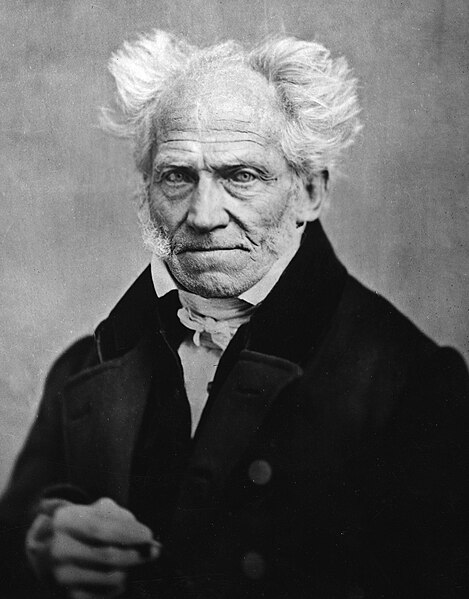Philosophical pessimism is a family of philosophical views that assign a negative value to life or existence. Philosophical pessimists commonly argue that the world contains an empirical prevalence of pains over pleasures, that existence is ontologically or metaphysically adverse to living beings, and that life is fundamentally meaningless or without purpose. Philosophical pessimism is not a single coherent movement, but rather a loosely associated group of thinkers with similar ideas and a resemblance to each other. Their responses to the condition of life are widely varied. Philosophical pessimists usually do not advocate for suicide as a solution to the human predicament; though many favour the adoption of antinatalism, that is, non-procreation.
Melancholy by Domenico Fetti (1612). Death, suffering and meaninglessness are the main themes of philosophical pessimism.
Henri Rousseau's The Hungry Lion Throws Itself on the Antelope (1905). Suffering seems to be inseparable from the life of wild animals. "The lion, being hungry, throws itself on the antelope, [and] devours it. The panther anxiously awaits the moment when it too can claim its share. Birds of prey have each torn a piece of flesh from the top of the poor animal which sheds a tear. The sun sets."
Antinatalism or anti-natalism is a family of philosophical views that are critical of reproduction — they consider coming into existence as bad or deem procreation as immoral. Antinatalists thus argue that humans should abstain from having children. Antinatalist views are not necessarily limited only to humans but may encompass all sentient creatures, arguing that coming into existence is a harm for sentient beings in general.
Arthur Schopenhauer is notable for expressing antinatalist sentiments in his works, such as in The World as Will and Representation (vol. 2) and Parerga and Paralipomena (vol. 2).



